‘The Zone of Interest’ Star Christian Friedel On Going To The Dark Side To Play Auschwitz Commandant Rudolf Höss: “There’s A Darkness In All Of Us”
- Oops!Something went wrong.Please try again later.
- Oops!Something went wrong.Please try again later.
- Oops!Something went wrong.Please try again later.
- Oops!Something went wrong.Please try again later.
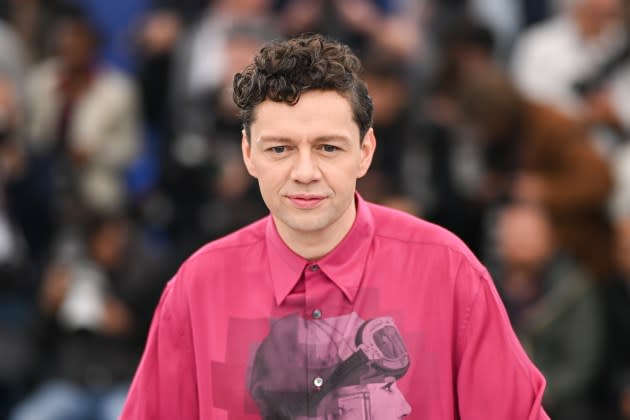
The phrase “banality of evil” is the perfect description for Jonathan Glazer’s Cannes hit The Zone of Interest. Loosely inspired by the late Martin Amis’s 2014 novel, it centers on the Höss family — Rudolf (Christian Friedel), his wife Hedwig (Sandra Hüller) and their children — a seemingly ordinary middle-class family living in the shadow of the father’s workplace: the notorious extermination camp Auschwitz. Glazer, a master craftsman, uses sound and image to create a nerve-wracking hellscape, but it’s in Friedel and Hüller that he finds a chilling conduit for the casual barbarity of Adolf Hitler’s Final Solution.
DEADLINE: How did you get involved with The Zone of Interest?
More from Deadline
CHRISTIAN FRIEDEL: I had to do a self-tape to describe myself and say why I became an actor. I did it without knowing the script, without knowing the potential role, but knowing that it was for a new film by Jonathan Glazer. I decided to do it in German, because it felt more natural, in a way. I think this was what opened the door, because I was the only one to do it in German, Jonathan told me later. And then I met Jonathan at a pub in London together with his producer and longtime friend, Jim Wilson. He shared with me his vision, the script, the potential role and some rare photographs. After that, I had a traditional casting call together with Sandra in Berlin, and then Jonathan asked me, “Do you want to be a part of this?” It was like a marriage proposal. I said, immediately, “Yes.”
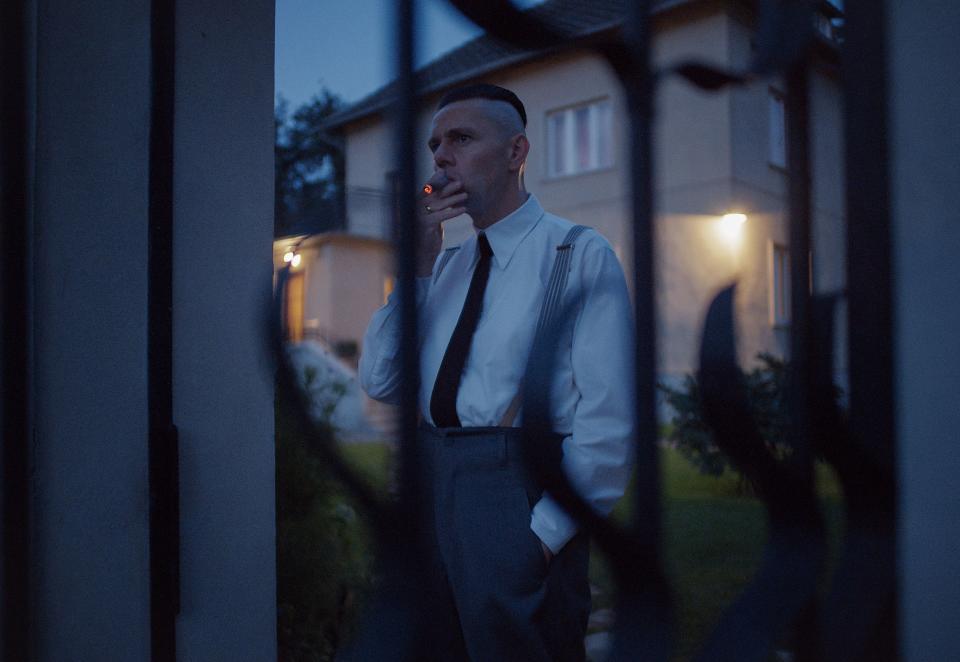
DEADLINE: What did he tell you about his vision exactly? Because it’s based on a novel by Martin Amis, but you didn’t read the novel, did you?
FRIEDEL: Yeah. I wanted to read the novel, but he said to me, “It’s not necessary for our project.” The novel was an inspiration. It was really important to him, but maybe more as the starting point to create his own vision. In the novel, there are three different storylines, and one storyline is based on the Höss family, but he decided to use the original Höss family, and he started to create his vision. He wanted to change the perspective, [like we were] looking in through the window, observing them with a multi-camera system.
DEADLINE: How much research did you do into the real Rudolf Höss?
FRIEDEL: I listened to his voice, because you can hear his voice on YouTube from the Nuremberg trials. You’re hearing the voice of a prisoner, not a commandant, about his crime, but it was really important for me to hear him. I also listened to some excerpts from his biography. But we didn’t want to make a biopic, it was more that we wanted to create our own interpretation of these characters. For me, the most important things were the conversations we had together, Jonathan, Sandra and I. And we had a lot of conversations — the project was postponed because of the Covid situation.
DEADLINE: What conclusions did you come to about Höss’s motivations for doing what he did?
FRIEDEL: The political system allowed him to have power over people, and, I have to say, he was a very good bureaucrat. He was very good at organizing things. In another political system he would be nobody, an ordinary, boring person. But here he has the chance to be better than that, to have power, and to be the king, in a way. He was not thinking about people as humans. I cannot understand how you can think, ‘What’s the most efficient, and not brutal, way to kill people?’ It’s cynical, but he was thinking about it like that, as if he was organizing a farm or something. Maybe it was to protect himself. I think this was the motivation, to be more efficient. He actually said that at the Nuremberg trial. He said, “This was my work, and I wanted to be the best.” But it was his choice to do this work and do it the way he did it.
DEADLINE: You mentioned the camera system. Can you explain how the film was made?
FRIEDEL: Jonathan would say, “It’s Big Brother in a Nazi house,” because we had something like 10 cameras at the same time, in different angles, sometimes in different rooms in the house, sometimes outside in the garden. And we shot scenes without interruptions. That was really amazing, because we came to the set and everything was prepared. And then we had only one or two scenes per day, and we had all the time in the world. Sometimes I describe the shoot as a search, because Jonathan had a phenomenal script, but he was always searching. It’s like he was saying, “If there’s something else, let’s figure it out together.” And this camera system allowed us to do so.
Sometimes we wouldn’t even know if the camera was running. Was it still recording? Was there someone to yell ‘Cut’? Sometimes there was no one yelling ‘Cut’, and then we had improvisation for one and a half hours. And then we had the freedom to decide for ourselves when to stop, when to continue, or when to repeat the lines. That was really great, because sometimes we had to be spontaneous — sometimes it’s good to figure things out. So, I really liked that there was this luxury situation of filmmaking.
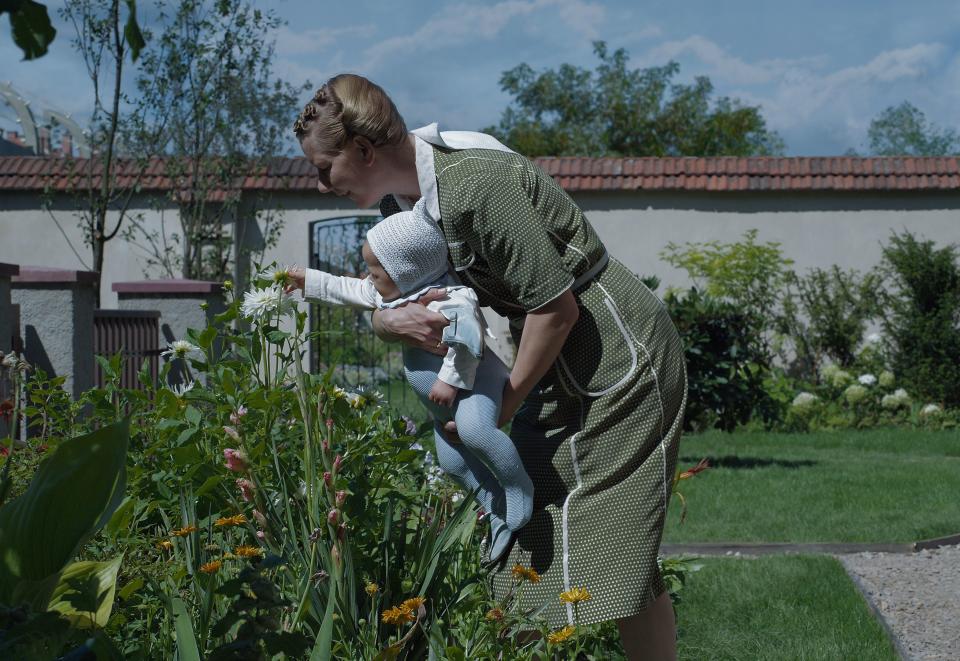
DEADLINE: Tell me about Sandra Hüller. How would you describe her, and what would you say that she brings to this movie?
FRIEDEL: We met many years ago for a movie called Amour Fou, and we had two funny scenes together. I played [writer] Heinrich von Kleist and she played my cousin. We met for the first time, and we had, from the beginning, a connection. We trust each other, and it’s a pleasure to work with her. I saw Sandra the first time in the movie Requiem and I was so thrilled about her, because she seems fearless, in a way. But on the other hand, she’s so curious and so open.
DEADLINE: When you first saw The Zone of Interest, what was your reaction to it?
FRIEDEL: As an actor, if you watch a movie for the first time, it’s always uncomfortable, and this film was even more uncomfortable. I was surprised about the decisions Jonathan made. I was really surprised about the whole sound design and the visual effects. I’ve watched the movie four times now. It’s always uncomfortable, but I really love to watch the movie with an audience and feel the reactions in the room. And every time I have more distance from myself, because I want to watch the movie as an audience too. But every time I watch the movie, I think, ‘Oh my God, this could be me.’ But that’s what the movie is about: It’s about us. We have to recognize we could all be in this situation. There’s a darkness in all of us.
DEADLINE: The film has only been shown at festivals so far, but do you ever get recognized?
FRIEDEL: I was at Telluride. Josh O’Connor was there too, and he saw the movie. Afterwards, we had dinner together with other colleagues and producers, and he said to our producer, “Christian is a nice guy — does he work for you? What he’s doing for the movie?” The producer said, “No, he was the commandant,” and Josh was shocked. [Laughs] It’s a compliment really, because I like to transform in different characters. This is the reason I became an actor: I’m interested in transforming. It’s sometimes difficult to recognize the real person, but sometimes it protects you. Maybe it’s difficult for my career, but I really like the fact that the transformation works.
DEADLINE: When did you first want to become an actor?
FRIEDEL: It was just in me. I don’t know why. When I was a child, I liked to entertain the whole room. Or when we were on vacation, I liked to sing or to play with hand puppets or something. That was inside of me. I grew up and I always was in the theater. I always dreamed of being in a movie. I had a keyboard when I was young, and I played piano and sang. I like to entertain, or maybe I like that there’s a reaction to do that what I’m doing. I don’t know why, but now I’m old, or older, I’m doing the same as I was when I was a child.
DEADLINE: What kind of roles were you doing in your theater work?
FRIEDEL: In my early theater work I played a lot of Shakespeare, because I love Shakespeare and, for me, those are the most important parts in theater. I’ve played Hamlet for 10 or 11 years now, and [I recently did] the 150th show of Hamlet. That’s really amazing. And I played Portia from The Merchant of Venice. That was one of my highlights in my theater career so far. I’m appearing now in a production called Dorian, based on The Picture of Dorian Gray, and also Macbeth. I’m not a typical Macbeth, but in theater that’s great. Sometimes you’ll have the opposite of what you are expecting.
DEADLINE: When did you start making movies?
FRIEDEL: I was dreaming of it since I was a child. I had a tradition, every Sunday, to go to the cinema and watch a movie and, after that, go to an ice-cream store. That was the weekly tradition in my childhood. Then I saw E.T. for the first time, and I wanted to be a part of this world, but my first movie as an actor was very late in my career. I was 29, and the movie was The White Ribbon [2009] with Michael Haneke. Haneke is like a mentor for me, and I learned a lot making this movie. After that, I decide not to do movies very often.
DEADLINE: Why not?
FRIEDEL: Because I have a band. I want to be a musician, I want to be a theater actor, and I decided to focus on movies for cinemas, not for TV. After that, I played a Jewish character in the film Closed Season [2012]. I played Georg Elser [in 13 Minutes, 2015], about a resistance fighter who tried to assassinate Hitler in 1939. That was a great success in Germany and Europe. And then I played the founder of Adidas, Adi Dassler, in Rivals Forever: The Sneaker Battle [2016]. It’s a biopic about the Dassler brothers. And this was really great because I played the character from when he was young until when he was older, in his 70s. That was a great experience. And I had a part in Babylon Berlin [2017], the TV series [by Tom Tykwer]. That was an important project for me, but The Zone of Interest is too. I’m really grateful to be a part of this movie, and I think there’s a connection to The White Ribbon.
DEADLINE: What are your memories of making The White Ribbon? It’s a very haunting film, much like The Zone of Interest. It doesn’t explain anything, but it tells you a lot.
FRIEDEL: Yeah, and I think there’s a connection to this movie, because the children in The White Ribbon could be the future perpetrators of The Zone of Interest. And making this movie was really amazing because Haneke is so precise. Sometimes he had sketches in the script, and he always knows what he’s doing. He’ll say, “Here, I’m cutting to her and then I’m cutting back to you.” It was really amazing, and the rehearsals were really, really precise.
Acting in his world, I had a lot of freedom, and I was really surprised about that fact, because sometimes you have the feeling that the acting is so [choreographed] in his movies, but he trusts you. He says, “Casting is the most important thing, and if you cast the right person, and then give all the actors all the freedoms and all the love and all the trust they need, you can create something really amazing.” Jonathan is the same. He’s precise too, but sometimes Jonathan is searching. He had a phenomenal script, but he was searching for something else.
The White Ribbon was a door-opener for international projects. I had an offer to be a part of Steven Spielberg’s War Horse, but I was not fast enough to say, “Let’s go.” I learned I have to be faster. If Hollywood asked me, then I had to immediately say, “Yes.” [Laughs] If it’s right, of course.
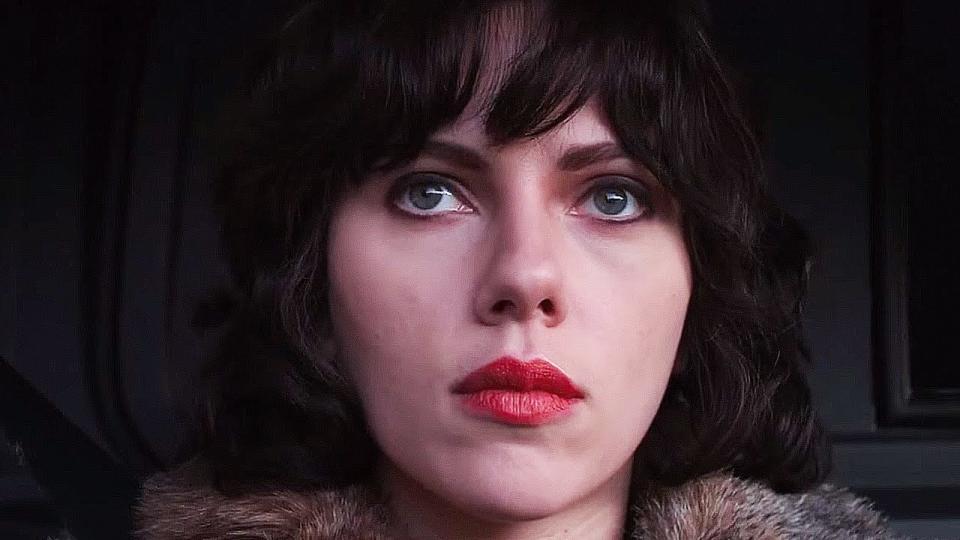
DEADLINE: Had you seen Under the Skin before you made this movie?
FRIEDEL: Yes, yes. When I had this offer from Jonathan and then visited him in London, I watched Under the Skin, Birth and, later, Sexy Beast. And I recognized that I grew up with his work without knowing that it was his work, because I’m a huge Radiohead fan. I’m also a Massive Attack fan, and he did a lot of music videos for them. I was sitting in a cinema once, and I watched the commercial for Levi’s with a woman and a man running through walls into the space. And then I realized, “Oh my God, it’s Jonathan Glazer.” Under the Skin is a really strange but inspiring movie about what it is to be human.
DEADLINE: There’s also a similar use of music. Mica Levi’s score takes on a life of its own…
FRIEDEL: I’m a huge fan of Mica. Their music inspires me. Sometimes I direct some theater pieces in Germany, and I work with a lot of music. Sometimes I compose music for theater plays together with my band, and I was very often very inspired by their music. With this soundtrack, I had goosebumps when I heard the overture, and I was really surprised because it was not written in the script. Sandra and I, when we first saw the movie, we were surprised by the blank screen at the beginning, but the music makes sense. It’s a combination of sounds, voices, instruments, and the extraordinary sound design of Johnnie Burn. It’s inspiring and it’s the right music for this.
DEADLINE: It sounds like a noise from hell. Did you feel that?
FRIEDEL: Yeah. If the devil needs music, then this is the soundtrack.
DEADLINE: Tell me about your music and what kind of music you make.
FRIEDEL: Our band name is Woods of Birnam, from the Birnam Woods of Macbeth, and we formed 11 years ago in Dresden. We call our music genre “art-pop”. It’s a combination of indie-pop with theatrical elements and sometimes synth-pop, like Depeche Mode meets Radiohead meets Bjork or Tori Amos. It’s a combination of different artists. Sometimes we compose music for theater or film projects and sometimes we make traditional albums. For me, this is my second family, the bandmates in Dresden. Now they are a little bit afraid that I’m moving to America, but I’ve said, “No, no, not yet.” For me, this is one of the most important things in my life, because music is, for me, the most personal expression. I cannot live without music.
DEADLINE: What’s coming up for you next?
FRIEDEL: I’m working on some projects with my band in Germany, and I’m preparing a new movie with director Markus Schleinzer, who’s currently working with Sandra Hüller on her next movie, Rose. And after that he’s going to be working with me on a movie about Klaus Nomi, the famous German countertenor who died very early in the ‘80s. I’ll play Klaus Nomi, I’ll sing his songs, and we will be composing some additional songs. It’s so different than The Zone of Interest.
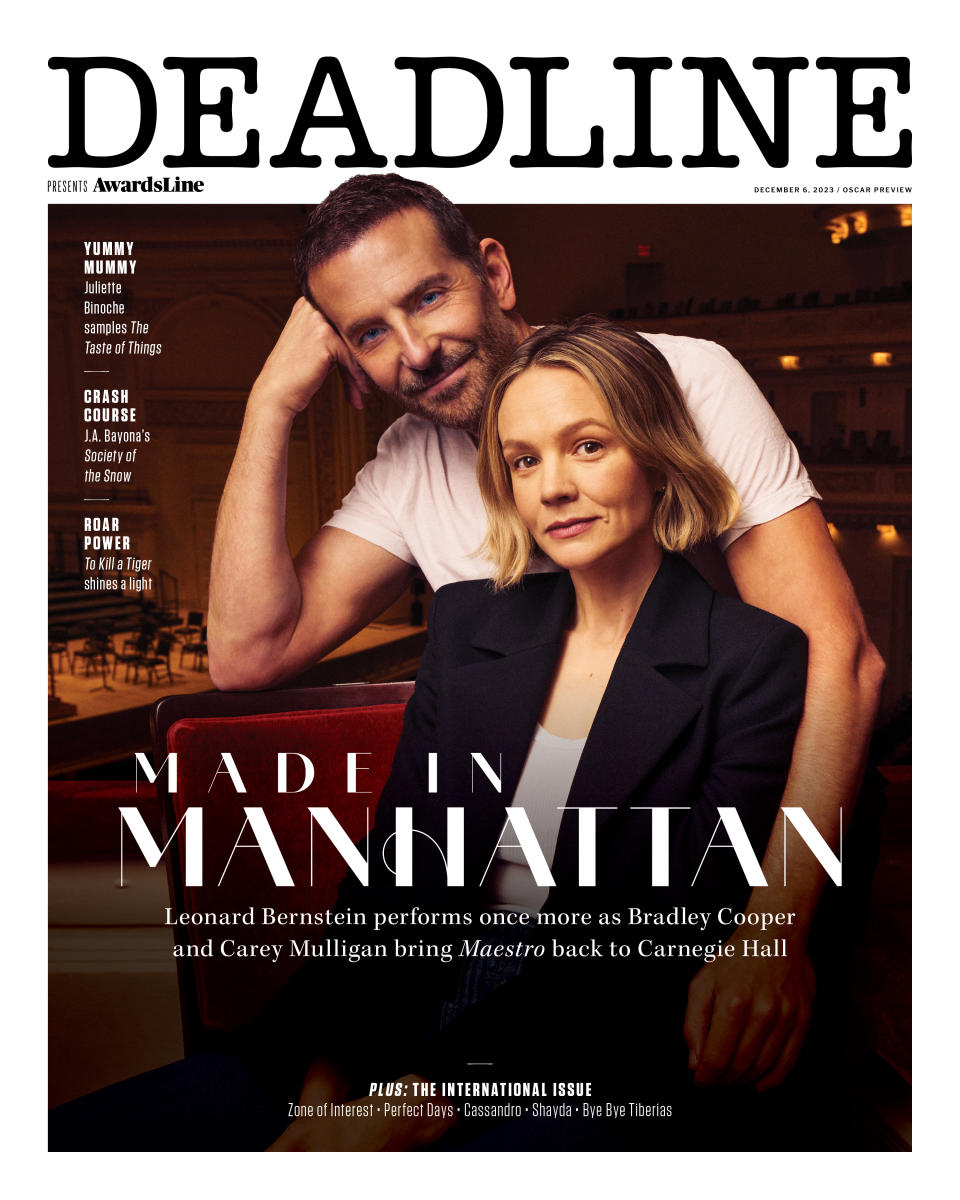
DEADLINE: What’s is your take on Klaus Nomi?
FRIEDEL: Oh, that’s a good question because, for me, he’s an inspiring person and a very modern person. We’re talking about things like, “What is a real man?” Or we’ll have these gender-fluid discussions, because Nomi‘s kind of between the genders and I think this is great. People used to say that he was an alien, but he’s a very modern character in our times, in our discussions.
I really like the idea of having a bridge from the past to the present day, talking about what it means to be a man, and sexuality, all these things. Because his voice is so high, like Maria Callas, and then his gestures are so artificial, in a way. He’s a really modern person.
DEADLINE: Do you have any ambitions? Now the door’s been opened by these movies, is there anything you want to do?
FRIEDEL: I want to be a part of a genre movie, because in Germany we never often do genre movies, like fantasy movies or horror movies. I’m working with arthouse directors very often, but I’m really interested sometimes in doing something different. I have a feeling it could be fun.
Best of Deadline
2023-24 Awards Season Calendar - Dates For Oscars, Emmys, Grammys, Tonys, Guilds & More
2023 Premiere Dates For New & Returning Series On Broadcast, Cable & Streaming
Sign up for Deadline's Newsletter. For the latest news, follow us on Facebook, Twitter, and Instagram.

